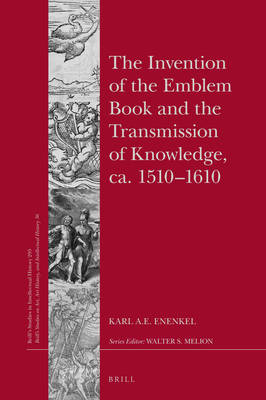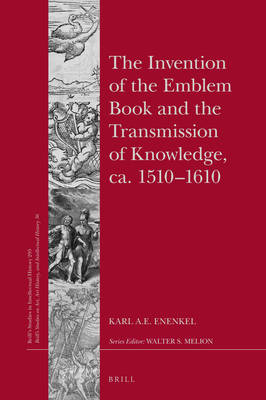
- Afhalen na 1 uur in een winkel met voorraad
- Gratis thuislevering in België vanaf € 30
- Ruim aanbod met 7 miljoen producten
- Afhalen na 1 uur in een winkel met voorraad
- Gratis thuislevering in België vanaf € 30
- Ruim aanbod met 7 miljoen producten
Zoeken
The Invention of the Emblem Book and the Transmission of Knowledge, Ca. 1510-1610
Karl A E Enenkel
€ 241,54
+ 483 punten
Omschrijving
This study reexamines the invention of the emblem book and discusses the novel textual and pictorial means that applied to the task of transmitting knowledge. It offers a fresh analysis of Alciato's Emblematum liber, focusing on his poetics of the emblem, and on how he actually construed emblems. It demonstrates that the "father of emblematics" had vernacular forebears, most importantly Johann von Schwarzenberg who composed two illustrated emblem books between 1510 and 1520.
The study sheds light on the early development of the Latin emblem book 1531-1610, with special emphasis on the invention of the emblematic commentary, on natural history, and on advanced methods of conveying emblematic knowledge, from Junius to Vaenius.
The study sheds light on the early development of the Latin emblem book 1531-1610, with special emphasis on the invention of the emblematic commentary, on natural history, and on advanced methods of conveying emblematic knowledge, from Junius to Vaenius.
Specificaties
Betrokkenen
- Auteur(s):
- Uitgeverij:
Inhoud
- Aantal bladzijden:
- 560
- Taal:
- Engels
- Reeks:
- Reeksnummer:
- nr. 295
Eigenschappen
- Productcode (EAN):
- 9789004355255
- Verschijningsdatum:
- 13/12/2018
- Uitvoering:
- Hardcover
- Formaat:
- Genaaid
- Afmetingen:
- 163 mm x 241 mm
- Gewicht:
- 1020 g

Alleen bij Standaard Boekhandel
+ 483 punten op je klantenkaart van Standaard Boekhandel
Beoordelingen
We publiceren alleen reviews die voldoen aan de voorwaarden voor reviews. Bekijk onze voorwaarden voor reviews.











